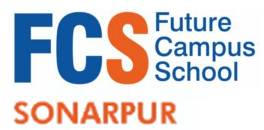
From puberty to adulthood, there are roughly three stages of adolescence. Children between eleven to fourteen years of age belong to early adolescence. From fifteen to seventeen they belong to middle adolescence stage and from eighteen to twenty-one in the late adolescence stage.
In all these stages, the cognitive functioning of a child is distinctive and unique. Their mental processes including their perception, reasoning, memory, judgement varies tremendously within a very short span of time.
That is why psychologists have earmarked these distinctive stages of adolescence for scientifically defining the developmental tasks to prepare them for adulthood.
Every experience is a discovery for an adolescent. It can be bewildering, confusing and even overwhelming for them at times. Emotionally and psychologically they are constantly trying to define their identity through assertion, independence, rebellion or rejection. These can be turbulent times for most parents of adolescent children who are tackling their paradoxes and desperately trying to hold back their children from going off-track.
It may be comforting to know for those flipped out parents that dealing with these apparently excited, freaked and headstrong youngsters may not seem so challenging if they knew what they really want. In fact, both parents and teachers play a critical role in providing the right kind of care and education to a child. Let’s discuss some effective ways of bridging the gap between adults and adolescents.
- Involve them in your discussions:
Be candid and transparent about your discussions with them. Engaging them in your conversations is the best way to help them express their ideas, feelings and opinions. Direct these conversations towards current affairs, trending topics so that they are aware about what is going on around them. - Encourage them to be independent:
It is good to help children. It is better if you allow them to complete tasks on their own. This is the best way adults can empower children to think and act independently which contributes towards their confidence. - Appreciate them:
Refrain from aggressive criticism of their thoughts and ideas. Rather your compliments and appreciation will help them go miles. Constructive feedback about their thoughts, decisions and actions allow them to see both sides of the picture and correct themselves meaningfully. Appreciation encourages them to try and push their limits. - Help them to envision the future:
Last but not the least, the adolescents need to realize very early in life that one needs a target to shoot the arrow. That target gives them direction to channelize their will and focus to achieve their goals. Encourage the young adolescents to set their own goals. They can start with smaller goal settings before they move on to target bigger milestones.
Concluding Thoughts:
Early education plays an integral role in developing the cognitive intelligence of children where we witness best results when parents and teachers work as partners to help children define their perspective in life.
Right schooling can provide the ideal learning ambience for laying the foundation for a child’s future. At FCS we provide quality teachers, pedagogy, infrastructural facilities, opportunities for peer interaction and all kinds of support to motivate children to learn, comprehend and apply knowledge.
Futuristic schools deploy a structured and scientific way of facilitating a psychological formation through a systematic arrangement of activities. That is how an adolescent learns to define his personality and respond to different situations in life through this imbibed intelligence.





